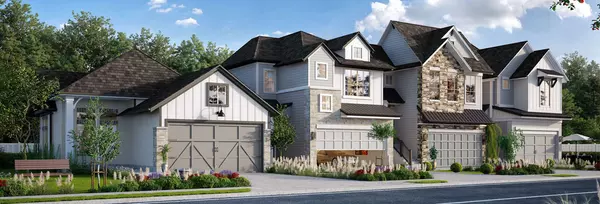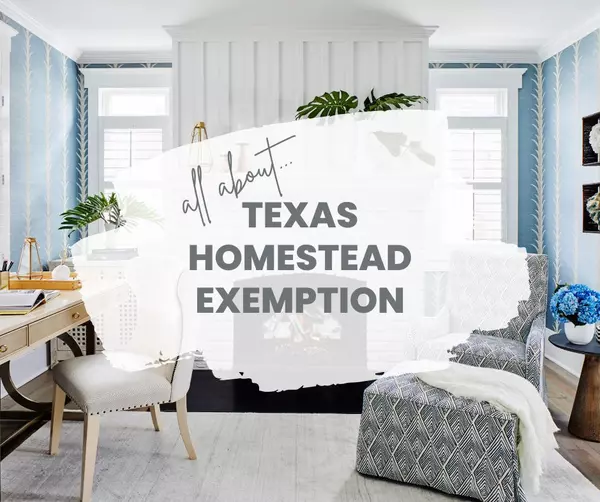

REALTORS® Help You Bring It Home
REALTORS® are your trusted partner in a real estate transaction. Here are a few of the countless ways that members of Texas REALTORS® support you when you buy, sell, or lease real estate.REALTORS® offer expert guidance: They bring unmatched knowledge and experience to every step, helping you make in
Read More

Better Understand Your Listing Options When You Sell
Did you know there are alternative ways to market your home, and you can control where and how your property is shown online?The National Association of REALTORS® published a guide to these listing options to help sellers like you understand all the ways you can display your home in the multiple lis
Read More

Is Your Home Priced Too High?
Even if your house is staged and well-maintained, it is only worth what the market will bear. To increase your chance of a quick sale, consider these signs that it may be time to adjust your selling price.Low TrafficAre you limiting your exposure? Since most buyers sort listings by price and locatio
Read More

3 Ways to Prepare for Homeownership While Renting
You may not be ready to buy your first home, but that doesn’t mean you can’t prepare now. Here are three actions you can do while renting that will put you in a better position when you’re ready to buy.Test the Budget You know all homeownership costs, but you can estimate how owning a home will affe
Read More

How Fair Housing Applies to You
Buyers, sellers, and real estate professionals all have rights and responsibilities when it comes to discrimination-free property transactions. The federal Fair Housing Act prohibits discrimination in housing and housing-related transactions based on race, color, sex (including sexual orientation an
Read More

This Real Estate Scam Could Cost You Thousands of Dollars
You’re smart. You’re careful. But even savvy buyers and homeowners fall victim to real estate fraud. Criminals are impersonating sellers and title companies, resulting in swindles that can take months of legal hassle to repair and cost you thousands of dollars.Do You Know the Targets?It starts with
Read More

What To Know When Hiring a REALTOR®
No one is better at guiding you through a real estate transaction than a REALTOR®. Your REALTOR® is a trusted professional who can help you understand local conditions, find and market properties, negotiate, and keep your transaction on track through closing. Here are a few things to know when hirin
Read More

Get the Data You Need To Reach Your Real Estate Goals
Data is king when making big financial decisions. That’s why it’s essential to know recent prices, current market trends, and related data when you’re buying, selling, or renting property.Who has access to that type of information? Your REALTOR®. Just as important, your REALTOR® can help you underst
Read More

Should You Fix That Before You Sell?
Making repairs before you list your home can positively affect the selling price and how quickly you attract a buyer. But do you need to fix everything before you put it on the market? Not all projects will be worth the time and money. Here are a few questions to consider to make your property more
Read More

5 Ways a REALTOR® Can Help With Your Rental Property
Many REALTORS® help people buy and sell houses, but some also specialize in property management. Whether you already own investment property or are thinking of buying a rental, a REALTOR® experienced in property management can handle all aspects of managing your asset—and reduce your stress. A REALT
Read More

5 Scams Targeting New Homeowners
Buying a home is exciting. However, scammers may try to use your excitement and inexperience against you. Watch out for these attempts to defraud you.Partner CompaniesBe wary if you receive a letter from a company claiming to be a partner or associated with your mortgage lender wanting additional in
Read More

Townhomes Coming to The Woodlands Hills?
Are Townhomes Coming to The Woodlands Hills Master Planned Community? Have you heard the rumor that there are going to be townhomes in The Woodlands Hills? The rumors are... kind of true! While a traditional townhome is a multi-story house attached to one or more similar houses by shared walls, the
Read More

Texas Homestead Exemption: What It Is and How to Use It
If you’re a homeowner or home buyer in Texas, you’ve probably heard of homestead exemptions. Let's learn all about the Texas homestead exemption... what it is, why you MUST leverage this if you're a Texas homeowner, and how to apply for it. If you live in Montgomery County and just want to skip rig
Read More
Recent Posts










